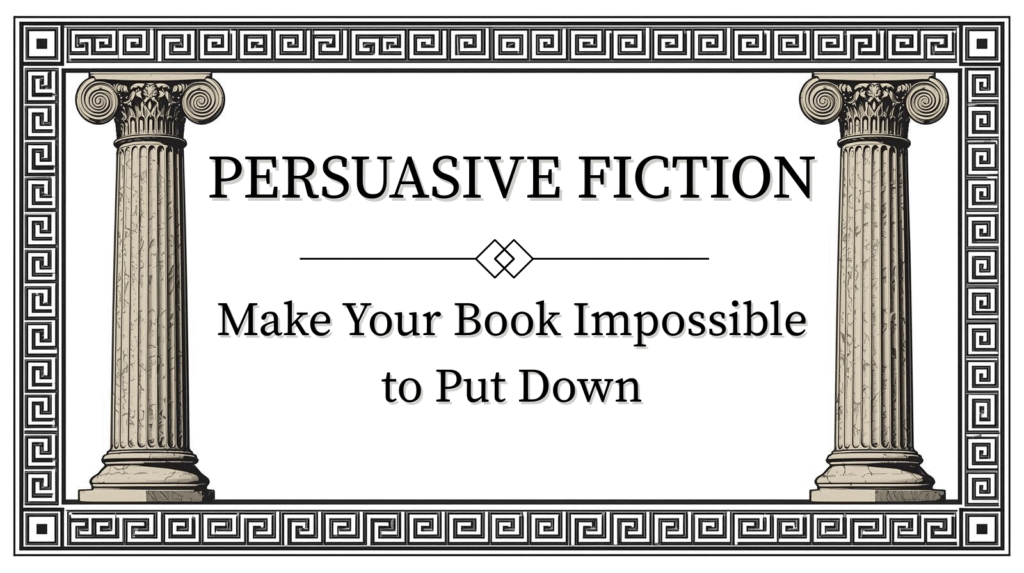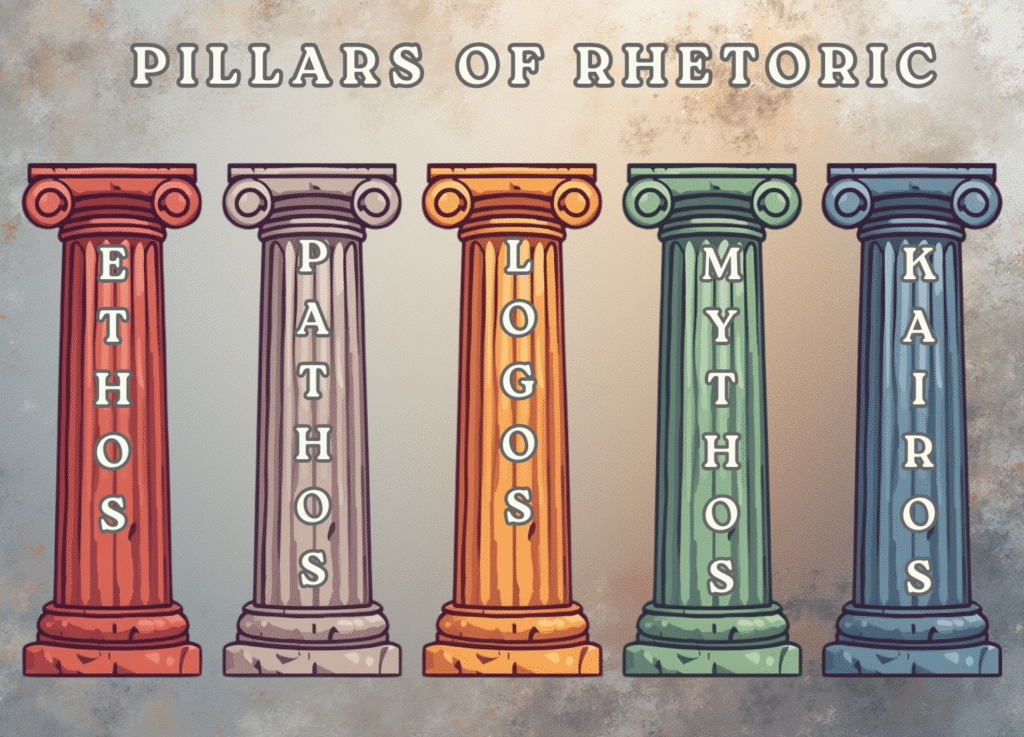As writers, we like to believe we are inventing something new in our stories, but every story you’ve ever loved—every time you believed in a character, got emotionally involved, or tossed a book against the wall—used basic rhetoric to encourage you to suspend disbelief and buy in to the narrative. That’s persuasive fiction.

Let’s discuss those rhetorical principles and how to consciously use them in our fiction for best effect.
If we use them well, our readers will sink into our stories and only surface at 3 AM when they reach THE END.
What Persuasive Fiction Really Means
Persuasive fiction isn’t about tricking people, it’s about making your story seem real.
You already use persuasion when:
- Your protagonist or POV character is believable.**
- The scenes you write evoke emotions and foster engagement.
- Your plot makes sense.
- Your reader recognizes classic themes or universal archetypes.
- The twist in your yarn happens at exactly the right time.
Ethos, pathos, logos, mythos, and kairos are a set of classical terms to consider every time you write because they are the very foundation of great storytelling.
(I suspect you thought of political speech when I first mentioned “persuasive fiction,” and that’s because politicians use rhetoric all the time to persuade us—sometimes they use persuasive facts, but many times, they use persuasive fiction. Just saying.)
** See also Your First Chapter: Point of View.
Why Older Writers Use Rhetorical Principles Instinctively
As writers of a certain age, you and I have seen lots of poor persuasion: from politicians, from marketers … from our teenagers. We have lived long enough to spot when someone’s words don’t ring true (unless we are stuck inside an information silo.) Check out Challenges for Late Blooming Writers.

Life experience often gives us an edge in writing persuasive fiction.
- Ethos – We know credibility must be earned.
- Pathos – We know emotions are tricky and complex.
- Logos – We know that logic matters, even in fantasy.
- Mythos – We know that readers relate fiction to the stories they already know, especially cultural myths and context.
- Kairos – We know that timing is everything in a story.
The trick is learning how to consciously using our instincts on the page.
The Five-Part Journey to Persuasive Fiction
This series, Persuasive Fiction, explores how each of the five appeals works inside stories that have lasted.
Each post will pair literary examples with practical applications for your work in progress because knowledge is one thing; using it to write better scenes is another.
Why Bother with Rhetorical Principles?
Readers are more skeptical than ever. They scroll past ads, skim blurbs, and abandon novels after one dull chapter. Persuasion isn’t optional—it’s survival.
If you can earn your reader’s belief, stir their heart, and deliver the payoff at the perfect moment, they’ll stay. They’ll remember. They’ll buy the next book.
Persuasive fiction isn’t about being clever. It’s about being clear, sincere, and intentional.
When you internalize these concepts, you’ll start seeing persuasion everywhere, and your stories will be the better for it.
Your First Mini-Challenge
Pick a novel you love and ask:
- Why do I trust this narrator? (ethos)
- What made me feel the strongest emotion? (pathos)
- Where did the story’s logic click—or fail? (logos)
- What timeless idea hides beneath the plot? (mythos)
- When did the author hit me with the perfect moment? (kairos)
Which book did you choose and how did it do?
